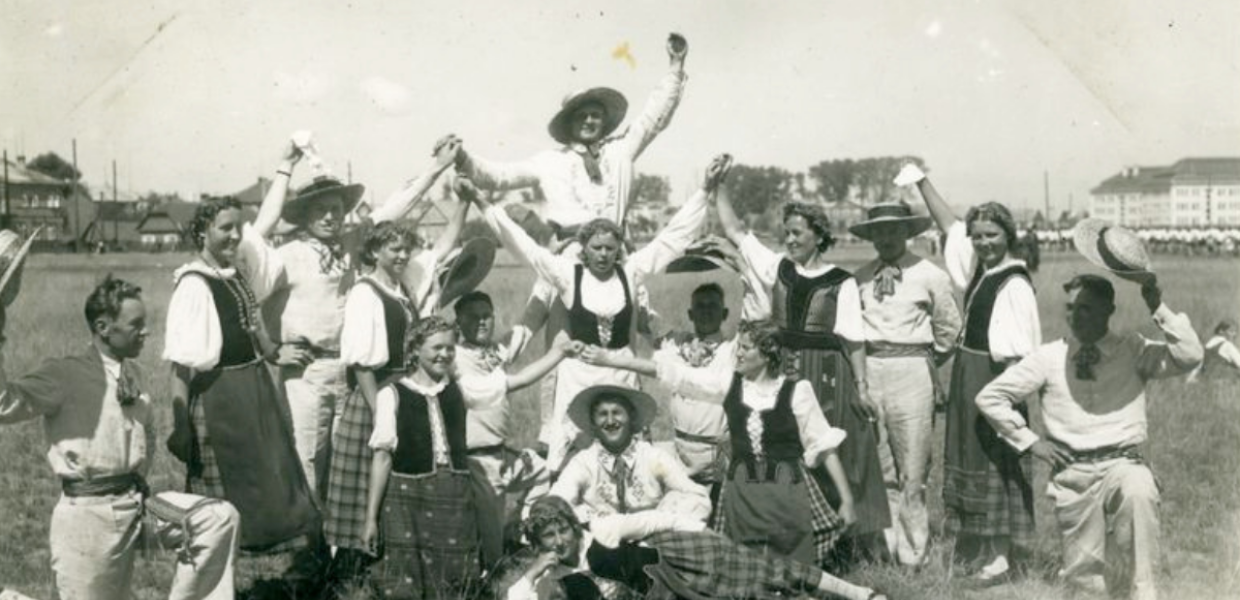The Europeana Aggregators’ Forum (EAF) advocates for and coordinates all the activities required for an effective aggregation ecosystem which makes data from cultural heritage organisations all over Europe available through Europeana. The EAF has significantly grown over the last few years, and 2020 saw exciting developments take place which strengthened its role and will support new activities in 2021!
Strategic and governance changes
Europeana’s 38 accredited aggregators who make up the EAF come together in a meeting twice a year, and in 2020 these meetings took place online over two days in May and October. At the meeting in May, aggregators held a copyright webinar to develop knowledge around identifying copyright status and selecting rights statements. In October, they approved important strategic documents such as the ‘Recommendations for a European Member States and Commission supported digital aggregation strategy’ for the Expert Group on Digital Cultural Heritage and Europeana (DCHE); and discussed the Europeana DSI aggregation strategy. In their meeting in May 2020, the EAF also approved changes to its governance structure to manage and distribute workload more efficiently across the Steering Group.
Alignment with the ENA
Since early 2020, the EAF and the Europeana Network Association (ENA) have been working to align their activities and develop a closer working relationship. The EAF Steering Group now collaborates closely with the ENA Management Board and Members Council, and in 2021 they will meet on a quarterly basis. This collaboration is reflected in other activities - the ENA and EAF can now work together on Task Forces and Working Groups, and the monthly ENA newsletter also highlights news from the EAF.
Task Forces and Working Groups
In 2020, the EAF started running its own Task Forces and Working Groups, which have already undertaken inspiring work! In spring, the IIIF Working Group was launched to work on IIIF adoption, training, and translation of resources, and in late summer the EAF Advocacy Task Force worked to produce aggregation policy recommendations, advocating for renewed support for aggregators at national and European level. In November, the Aggregator User Group was set up to manage feedback to the Europeana Foundation about the main products of the Europeana Core Service Platform and will continue to work in 2021.
In the coming months, a new task force will be launched in relation to the Europeana capacity building framework. It will focus on developing a knowledge sharing platform and establishing structured training activities by and for the aggregators. The EAF will also continue to prepare for the launch of the Library Working Group, which will provide support and a discussion forum for the national libraries providing data to Europeana.
A robust accreditation scheme
In 2018, the EAF established an accreditation process for accepting new members, and in 2020, the Technische Informationsbibliothek (TIB) - AV Portal, received accreditation, bringing the number of aggregators represented in the EAF to 38. Two more members are awaiting accreditation - the national aggregator of Cyprus and Estonia. In 2021, the accreditation scheme is going to be reviewed to make sure it can sustain EAF membership more effectively.
Supporting digital transformation
Over the year, aggregators have taken part in a number of initiatives which intend to support digital transformation in the cultural heritage sector. In June 2020, twelve aggregator representatives took part in a series of ‘sense-making’ workshops around ‘Digital transformation in the time of COVID-19’. The findings and outcomes of this process provided valuable insights into the different ways that the pandemic has affected people’s and institutions’ work, and they were further discussed within the EAF framework in a dedicated session in December.
Over the summer, on behalf of the Europeana Initiative, the EAF also provided response to the European Commission’s consultation on ‘Opportunities Offered By Digital Technologies For The Cultural Heritage Sector’ in the form of a common position paper that underlined critical elements to executing the Europeana Strategy 2020-2025.
Aspirations for 2021
After a successful 2020, in 2021 the EAF will keep supporting cultural heritage institutions across Europe to seize digital opportunities for their collections and make them accessible online at a high quality. The main activities for 2021 will include:
Expanding and strengthening the EAF and adding value for its members by reviewing the accreditation scheme.
Creating opportunities for collaboration and supporting emerging aggregators to join the network.
Working closely with the Europeana Foundation and the ENA on a capacity building framework and around the topic of diversity and inclusion.
Engaging accredited aggregators in improving the Europeana aggregation infrastructure and Europeana products.
Improving the quality of aggregated metadata and content.
Advocating at the European Commission and the Member State level for the aggregators’ role.
Strengthening ties with the Europeana Foundation, ENA and other sectoral bodies to help step up the digital transformation of the cultural heritage sector.
Additionally, in 2021, the terms of two members of the current EAF Steering Group - Marco Rendina and Sara Di Giorgio - will come to an end. The election of new members will take place in mid May, and the handover of activities as well as the internal election of Chair and Vice-chair will take place after the spring EAF meeting.
Finally, the EAF is planning to organise an online awareness event in June to give the aggregators a platform to reach out to their networks, and each other. It will be a great opportunity to raise awareness of the EAF, and to showcase the work of different aggregators to the broader Europeana network and to cultural heritage institutions across Europe. We will share more information about the event soon.
You can read more about the EAF activities in 2020 and 2021 in their Activity Report and Activity Plan.




